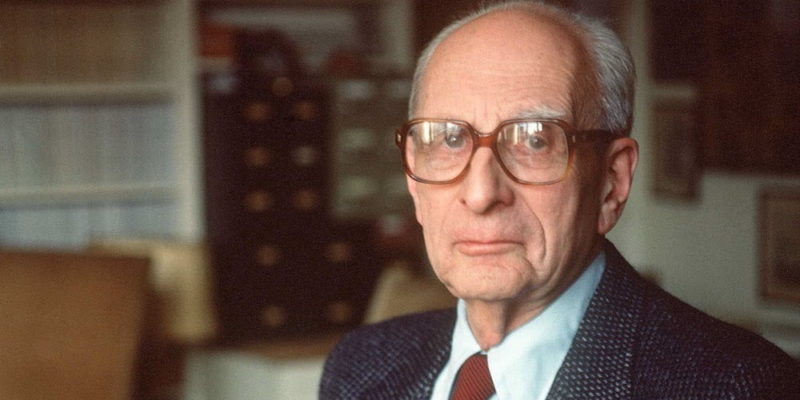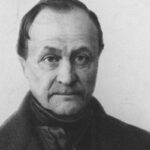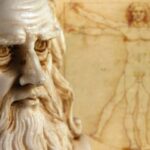We explain what structuralism is, its characteristics and main representatives. Also, its relationship with functionalism.

What is structuralism?
structuralism It is a philosophical current that proposes thinking from the analysis of structures
For structuralists, every object or system is composed of a structure that functions as a whole whose parts are related to each other. Structuralism seeks to identify the structures that make up its object of study, no matter what this object is.
However, structuralism is not a formal current of thought (that is, a school to which different thinkers adhere). Structuralism is a way of research that is used in different social sciences.
During the second half of the 20th century, structuralism became popular to the point of being the most used method in the study of language, culture and society.
See also: Structure
What does structuralism propose?
For structuralism, The meaning of things is determined by their internal structure. The internal structure of a thing or idea is the set of systems that operate inside it and that can be studied separately even if they work together.
In that sense, the novelty of this approach was not having introduced the idea of structure, which was present in Western thought from its beginnings, but rather having used it to eliminate any concept that wanted to order reality.
History of structuralism
Structuralism was born with the General linguistics courseby Ferdinand de Saussure (1857-1913). Saussurean linguistics thinks of language as a system of signs and meaning, arbitrarily related.
These two concepts, the system and arbitrariness, are central to understanding the idea of structure. For structuralists, the analysis of the arbitrary relations of the system results in its dominant structure.
Saussure's work had a decisive impact on the work of the formal founders of structuralism: the anthropologist Claude Lévi-Strauss, the psychoanalyst Jacques Lacan, the semiologist Roland Barthes, the philosopher and epistemologist Michel Foucault and the Marxist philosopher Louis Althusser.
The expansion of structuralism occurred thanks to the work of these thinkers. The work of the linguist Roman Jakobson, who decisively influenced Lévi-Strauss, was also a determining factor.
The schools of structuralism and their characteristics
All structuralist schools put forward the idea that everything is made up of structures. The way they are organized is what produces the meaning and significance of things.
Furthermore, for structuralism in general, structures determine the position of elements within the system and are not visible at first glance.
However, structuralism can be thought of from three main perspectives or schools of thought: linguistic structuralism, anthropological and Marxist.
- Linguistic structuralism. Represented by Saussure and Jakobson, linguistic structuralism studies language, which is a system of signs. This school maintains that language is a social and homogeneous system, which differs from speech, which is an individual and heterogeneous action with which language interacts.
- Anthropological structuralism. Represented by Lévi-Strauss, anthropological structuralism analyzes the human being and society as systematic structures. The base of these structures remains hidden or underlying, and therefore the anthropologist's job is to reveal the characteristics of each structure.
- Marxist structuralism. Represented by Althusser and other Marxist philosophers, Marxist structuralism maintains that the founder of structuralism is not Saussure but Karl Marx. Marxism believes that structure should not be confused with the visible relationships of the parts of the system that makes up society.
Representatives of structuralism
There are many authors who worked from structuralist ideas. The most important, however, are Ferdinand de Saussure and Claude Lévi-Strauss, two authors who shaped structuralism.
- Ferdinand de Saussure (1857-1913). He became famous for his General linguistics course (1916), a posthumous publication that laid the foundation for structural linguistics. Saussure proposed to think of language as a system, constituted from the signified and the signifier, the two parts of every sign, inseparable, opposite and complementary.
- Claude Lévi-Strauss (1908-2009). He became a central figure in his discipline in the mid-20th century as the founder of structural anthropology. This was based on what was developed by Saussure and the school of Russian Formalism (of which Roman Jakobson was a part). His thesis on the “elementary structures of kinship” was famous, the first successful attempt to apply structuralist thinking to the anthropological field.
Other important figures of structuralism were Jacques Lacan (1901-1981), Louis Althusser (1918-1990), Jacques Derrida (1930-2004), often associated with post-structuralism, and Roman Jakobson.
Structuralism and functionalism
Functionalism is a theoretical current that emerged in 1930 in England, linked to the work of Émile Durkheim (1858-1917). Its basic precept is the understanding of human society as an “organism,” rather than a structure.
As an organism, society is capable of putting in place the necessary processes to protect itself: dealing with conflicts and irregularities, governing social balance and giving its parts a role within the social system.
Due to the similarity between the ideas of structure and organism, the later currents that British social anthropology developed thanks to the research of Bronislaw Malinowski and Alfred Radcliffe-Brown, and the American sociologist Talcott Parsons, are known as “structuralist functionalism.”
References
- Wahl, F., & Pirk, A. (1975). What is structuralism? Philosophy. Losada.
- T. Todorov, What is structuralism? Poetics. Losada.
- Piaget, J. (1971). structuralism. Proteus Publishing.
- Lévi-Strauss, C. (1958). Structural Anthropologie. Librairie Plon.





